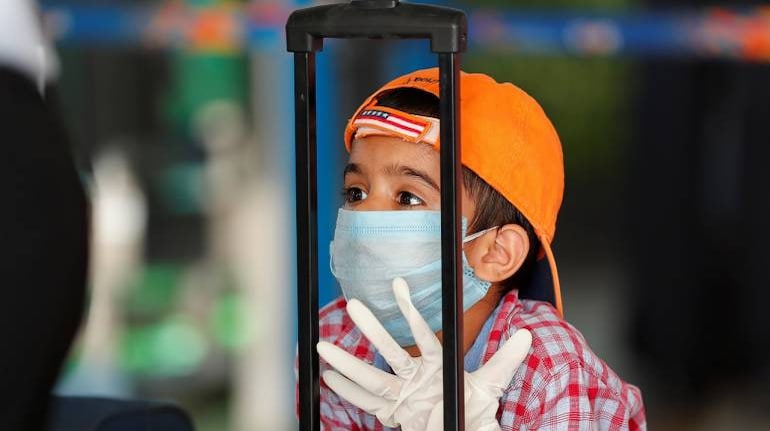



AN Shyam was looking forward to visiting his hometown Guntur after nearly two years. The tech professional, who is working in the US, had stayed away because of the twin fears of contracting Covid and getting stuck if a lockdown was announced and flights suspended, as happened in March 2020.
His worst fears came true when US carrier United Airlines announced it had temporarily suspended services to Delhi, citing restrictions related to Covid-19.
“How do I meet my mother, wife and two kids now,” wondered Shyam, who was to fly from San Francisco to New Delhi on May 10, and then take a connecting flight to Vijayawada. To his relief, the American carrier reversed its decision and said it would resume services from April 25.
Vignesh Nath (name changed) was not so fortunate. He was to fly back to Toronto from Mumbai on May 14. But on April 23, Canada joined a list of countries suspending air services to India. The North American country has imposed the restriction for 30 days.
“I now fear losing my job. This (getting stuck in India) is what happened to a colleague last year. He just about managed to keep his job,” explained Nath.
Suspensions risingNearly a dozen countries, including New Zealand, the UAE, Hong Kong and the US, have announced either a suspension of air services, or have advised citizens against travelling to India.
This also led to last-minute scramble to get out of, or fly into, India. Fares to London, New York and Dubai, among the most popular destinations for Indians, nearly trebled.
“Many flights to the UK, Middle east and Canada have been cancelled. With the rise in Covid-19 cases, we can expect more international locations to close flights. The majority of airlines are giving full refunds for cancelled flights, but a few airlines are not processing refunds and are giving the option to reschedule,” says Rikant Pitti, co-founder of online travel agency EaseMyTrip.
Twitter already has many customers asking for refund details from airlines. These also include those who are yet to get their money for bookings done last year.
Trouble at homeThe chaos is not limited to international travel.
In Ahmedabad, Ankit Bajaj could just sit back helplessly and see nearly 90 percent of his customers cancelling their travel plans in the domestic market. Many of them had booked tickets in advance to travel during the summer, a favourite time for Indians to visit relatives and friends.
“There is no booking at all. Most of the customers are cancelling tickets instead of re-scheduling, as they are unsure when things will get better. There is a fear now,” says Bajaj, a Director at Chiky Travels.
As Jyoti Mayal, President of Travel Agents Association of India, told Moneycontrol in a recent interaction, customers had gotten used to travelling amid Covid-19. By February, passenger traffic in the domestic market had improved enough for some airlines to ask the government to completely remove the cap on capacity utilisation. Right now, the cap is at 80 percent.
Not anymore. ”People are worried about falling sick, and then not being able to get admitted to hospital, or running out of medicines and oxygen,” said Mayal. The uncertainty is dampening the appetite to travel.
Relentless waveOn April 25, India again reported nearly 3.5 lakh fresh cases, with many States still reporting a shortage of beds as well as oxygen in hospitals.
While airlines have pulled back capacity — up to a quarter by the beginning of April — cancellations are not high. “We haven’t seen a huge spike in flight cancellations so far,” said Pitti of EaseMyTrip. And even if they are cancelling, he added, the airline will have to give passengers a full refund. “There is no new direction yet from the airlines till now,” he, however, noted.
The hope for revival firmly sits on a speedy vaccination drive. “We are looking at the trend of Covid-19 cases. It may peak by mid-May,” says Bajaj. A scaled-up vaccination drive from May 1 may help in that, with anyone above the age of 18 eligible to take the jab.
Discover the latest Business News, Sensex, and Nifty updates. Obtain Personal Finance insights, tax queries, and expert opinions on Moneycontrol or download the Moneycontrol App to stay updated!
Find the best of Al News in one place, specially curated for you every weekend.
Stay on top of the latest tech trends and biggest startup news.